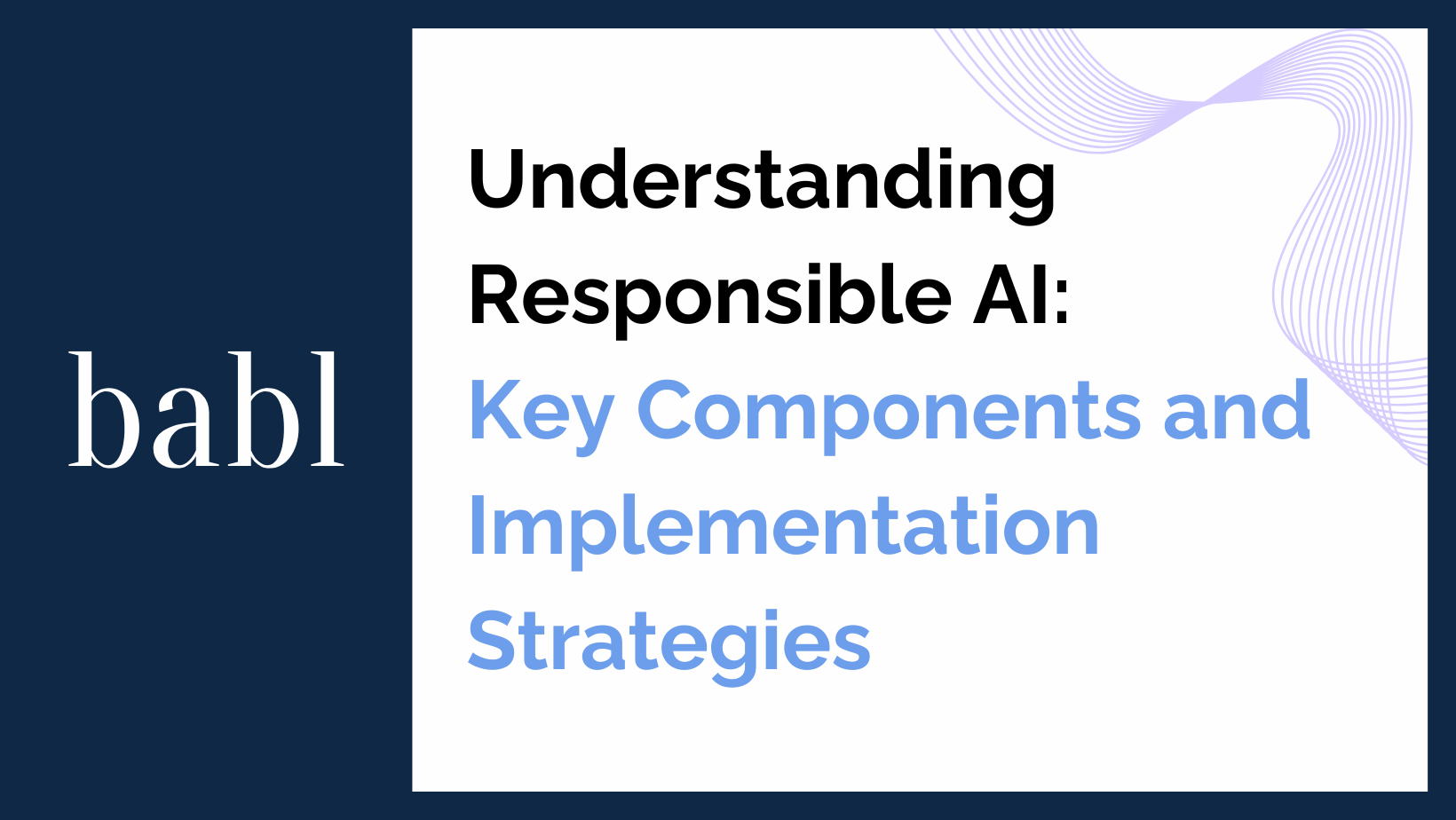As artificial intelligence (AI) continues to evolve and integrate into various aspects of business and daily life, the importance of responsible AI has come to the forefront. Responsible AI encompasses the ethical, transparent, and accountable use of AI technologies, ensuring that these systems are designed and deployed in ways that are fair, reliable, and aligned with societal values. For businesses, implementing responsible AI is not only a moral imperative but also a strategic advantage, fostering trust among consumers, employees, and stakeholders. This blog post delves into the key components of responsible AI and provides guidance on how businesses can effectively implement these principles.
Key Components of Responsible AI
-
Fairness
Fairness in AI involves ensuring that AI systems do not perpetuate or exacerbate biases. AI systems can inadvertently learn and replicate biases present in training data, leading to discriminatory outcomes. Responsible AI requires rigorous testing and validation to identify and mitigate such biases, ensuring that AI systems make decisions that are fair and equitable.
-
Transparency
Transparency is a cornerstone of responsible AI. It involves clear communication about how AI systems operate, what data they use, and how decisions are made. Transparency helps build trust by allowing stakeholders to understand and evaluate the AI’s decision-making processes. It also involves making the limitations and uncertainties of AI systems known to users and stakeholders.
-
Accountability
Accountability in AI means establishing clear lines of responsibility for the outcomes of AI systems. This includes defining who is responsible for overseeing the AI’s operation, monitoring its performance, and addressing any negative impacts that arise. Accountability mechanisms ensure that there are processes in place to address errors, biases, and other issues, fostering trust and confidence in AI systems.
-
Privacy and Security
Protecting user privacy and ensuring data security are critical components of responsible AI. Businesses must implement robust measures to safeguard personal data, comply with data protection regulations, and prevent unauthorized access or misuse of data. This involves adopting best practices in data management, such as data anonymization, encryption, and secure storage.
-
Inclusivity and Accessibility
Responsible AI should be designed with inclusivity in mind, ensuring that AI systems are accessible and beneficial to all segments of society. This includes considering the diverse needs of different user groups, including those with disabilities, and ensuring that AI systems do not marginalize or exclude any group.
Implementation Strategies for Responsible AI
-
Establish Clear Ethical Guidelines
A company’s first step should be setting ethical principles that guide how AI is developed and used. These guidelines must reflect the organization’s mission and values. The clearer and more accessible the guidelines, the easier it becomes for employees to follow them.
-
Build Diverse Development Teams
Diverse teams are more likely to catch blind spots and identify potential bias. Companies should seek diversity in experience, culture, background, skills, and perspectives. This variety helps create AI systems that better serve broad user groups.
-
Conduct Regular Bias Audits
Routine audits help uncover hidden or emerging biases. These reviews should occur throughout the AI lifecycle—from early development through deployment and ongoing use. By addressing issues early, businesses reduce the likelihood of unfair outcomes.
-
Improve Transparency Practices
Companies should document their AI models, data sources, and decision-making methods in clear, understandable language. They should also outline risks, limitations, and the reasoning behind key system outputs. This type of documentation strengthens public understanding and trust.
-
Create Accountability Frameworks
An accountability framework defines who is responsible for what. It includes reporting channels, monitoring procedures, and methods for resolving concerns. When stakeholders know where to turn with questions or complaints, oversight becomes more effective.
-
Prioritize Data Privacy and Strong Security
Organizations must adopt detailed data-protection policies and meet legal requirements such as the GDPR. Regular security assessments, secure storage practices, and encryption protocols are essential for reducing the risk of data breaches.
-
Engaging Stakeholders Early and Often
Effective responsible AI requires ongoing communication. Companies should invite feedback from employees, customers, regulators, and community groups. This engagement reveals concerns that may not be visible from inside the organization and helps shape more ethical AI systems.
-
Commit to Continuous Improvement
AI technology evolves quickly, and businesses must keep pace. Regularly updating guidelines, staying informed about emerging standards, and improving existing systems help companies remain responsible as new challenges arise.
Conclusion
Responsible AI is more than a checklist—it is a long-term commitment to ethical, transparent, and accountable use of advanced technologies. By prioritizing fairness, privacy, accountability, and inclusivity, companies can strengthen trust, reduce risks, and position themselves for long-term success. As AI continues to reshape the modern economy, the organizations that invest in responsible practices will lead the way.
Need Help?
If you’re wondering how to navigate AI regulations around the world, don’t hesitate to reach out to BABL AI. Their Audit Experts are ready to provide valuable assistance while answering your questions and concerns.





